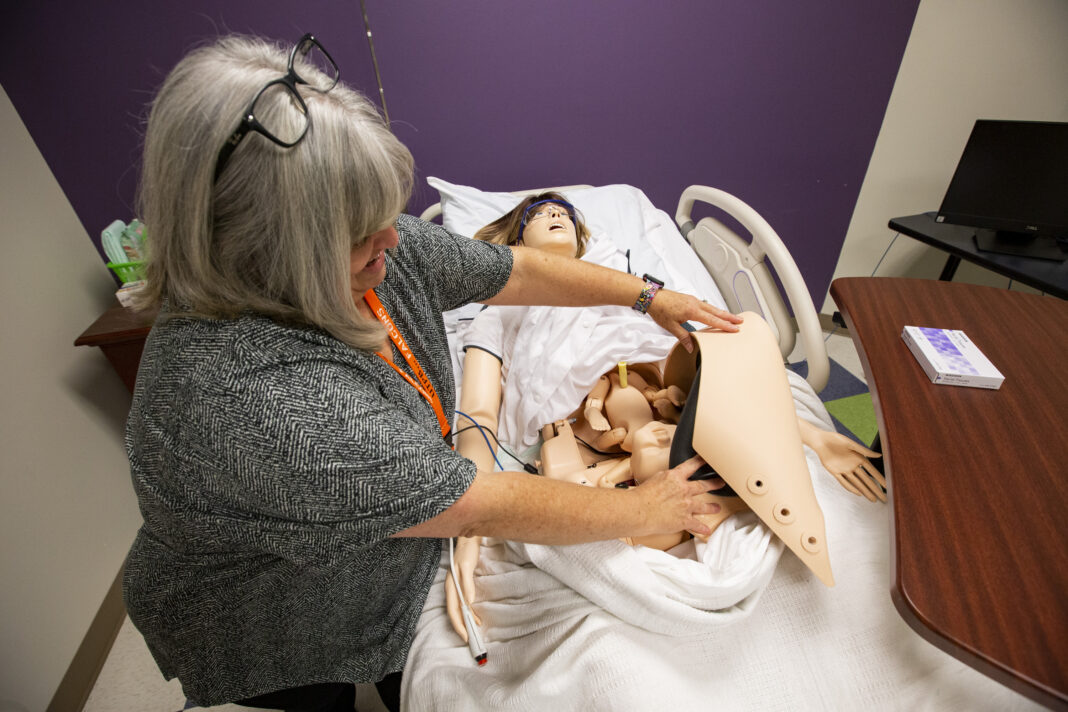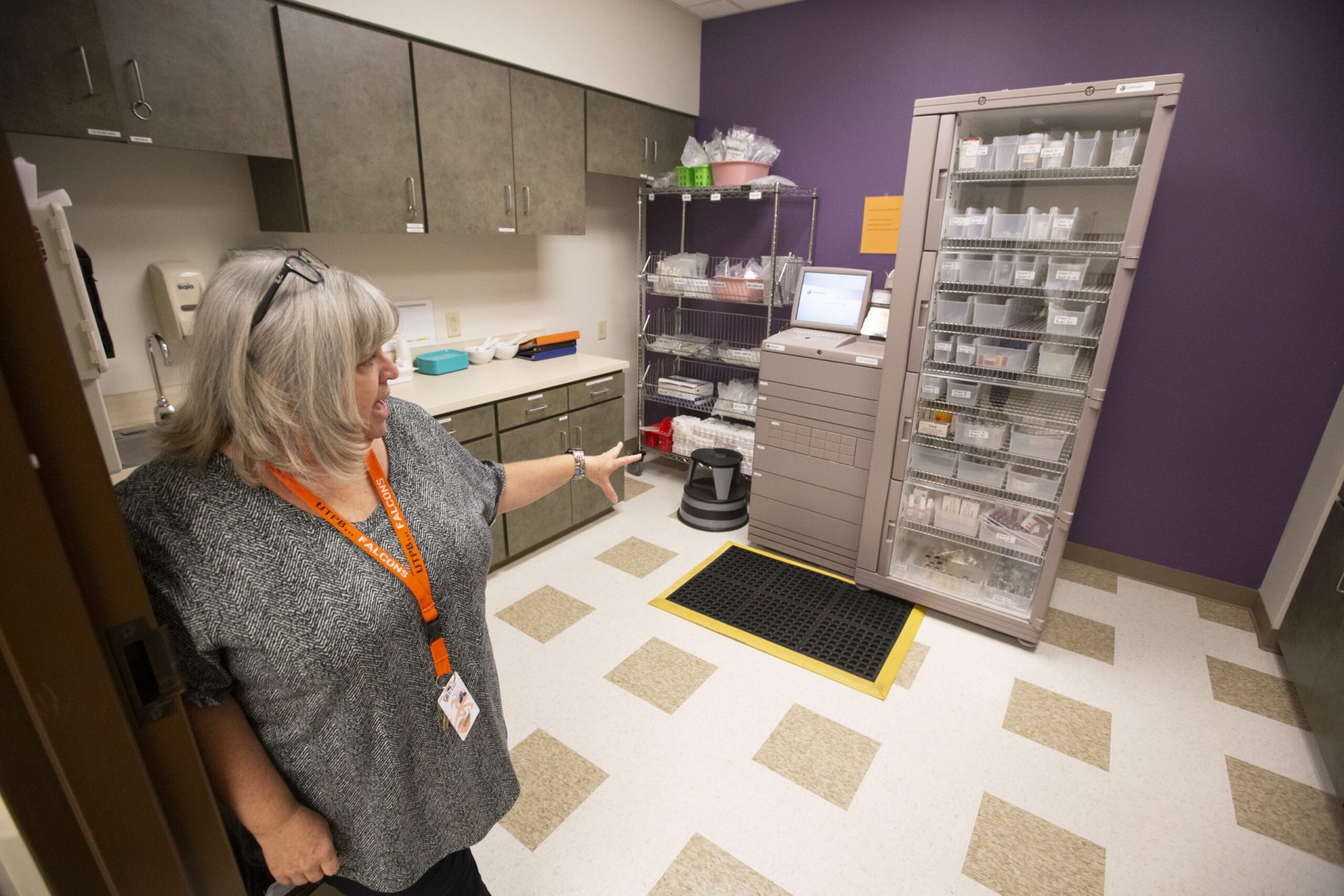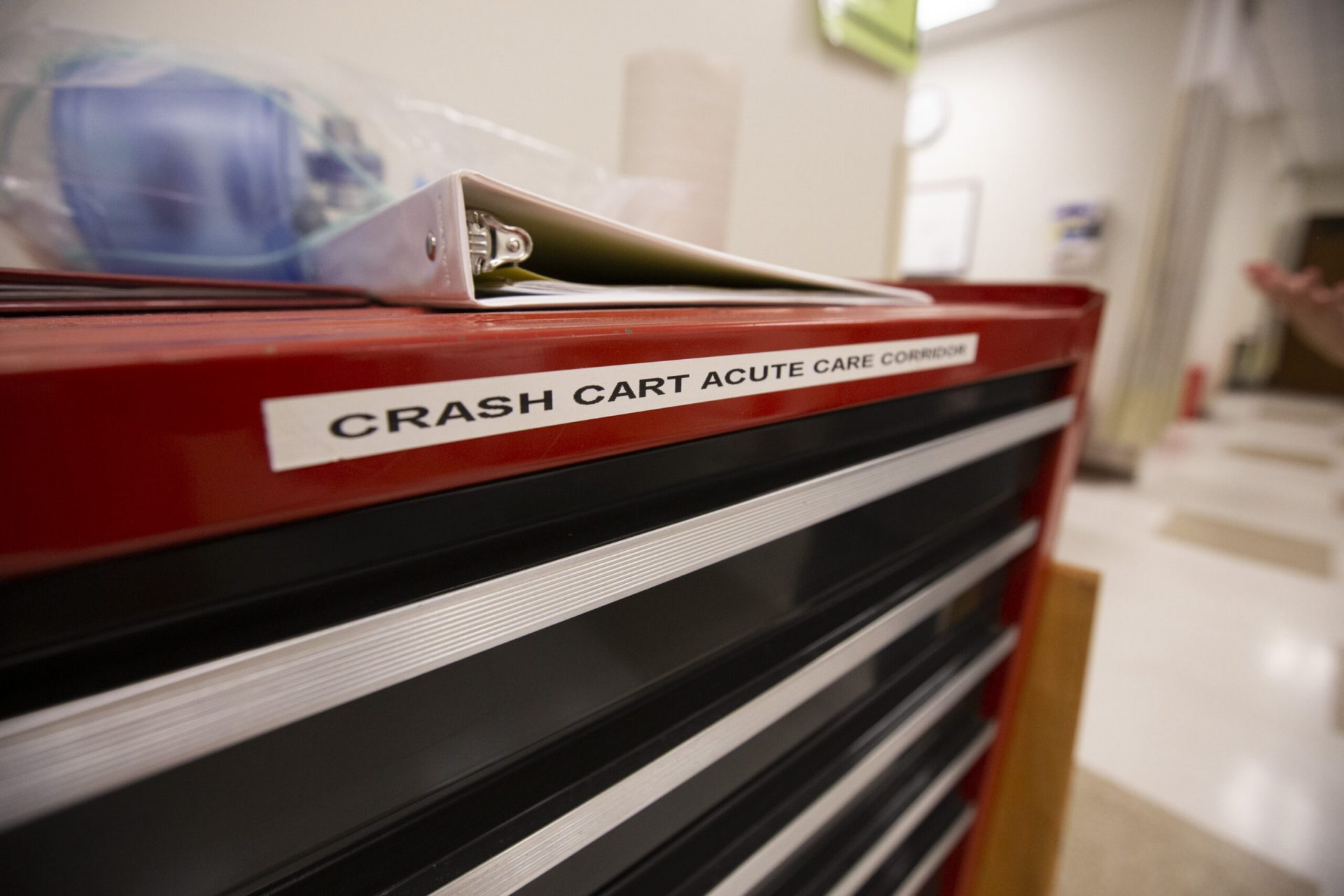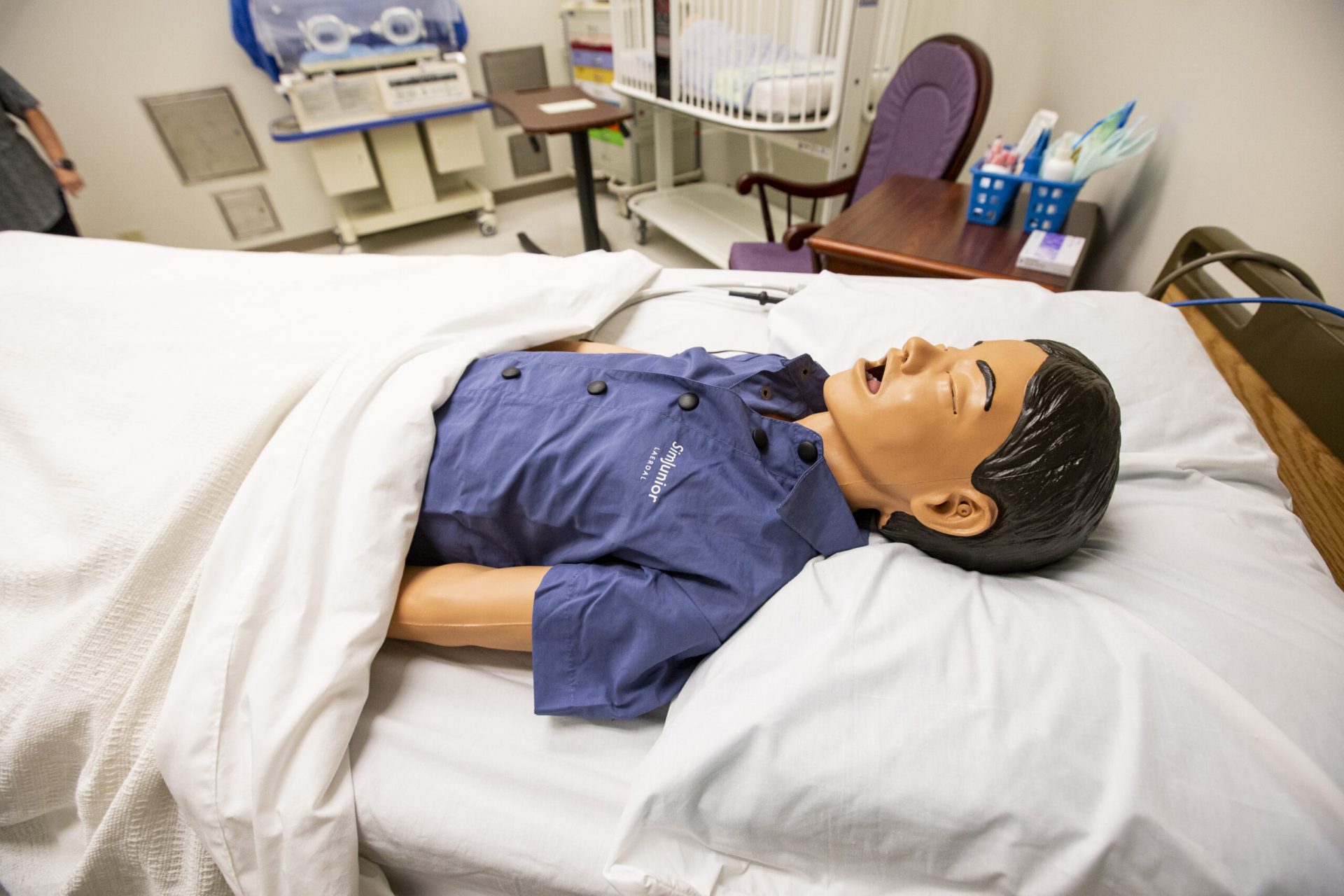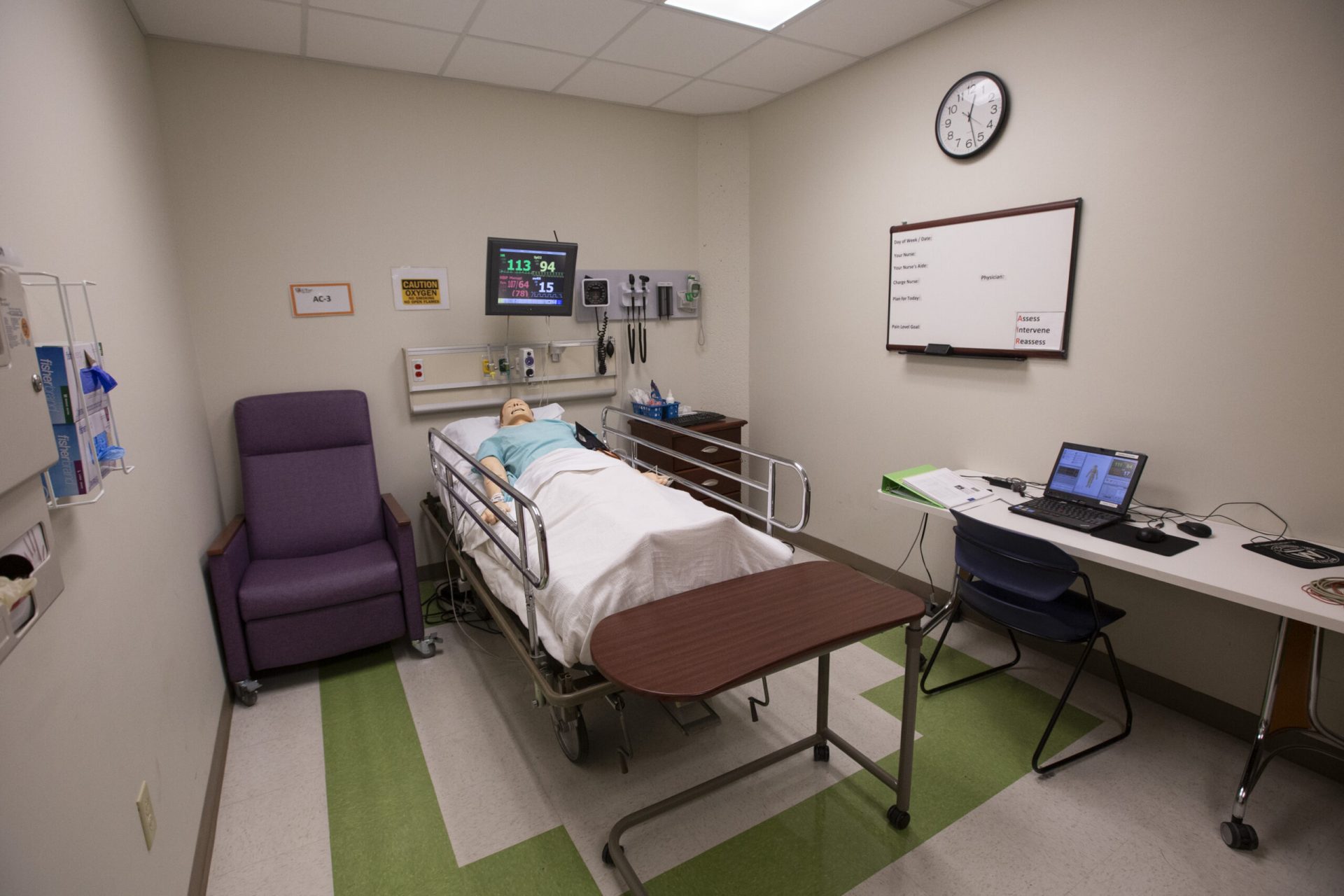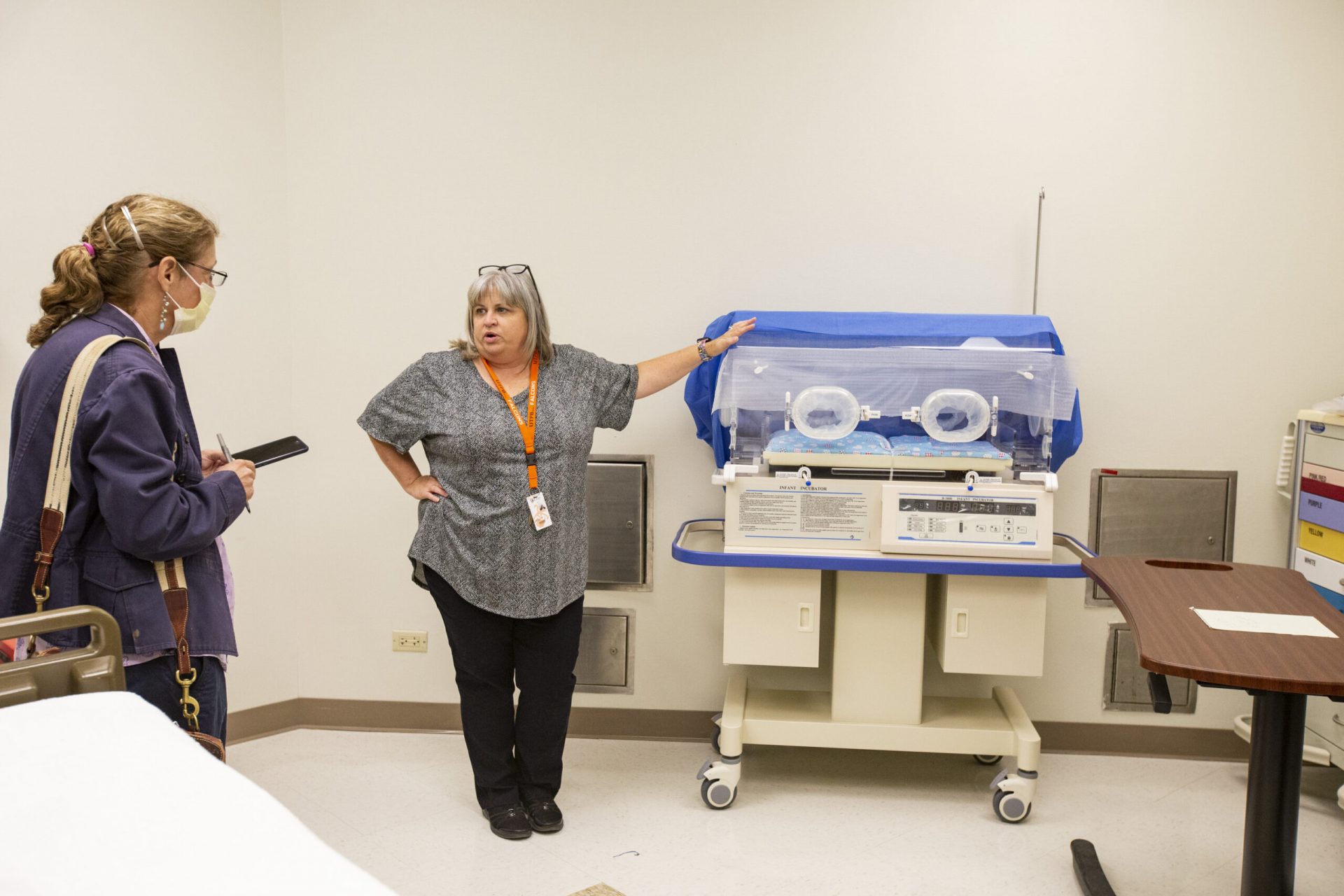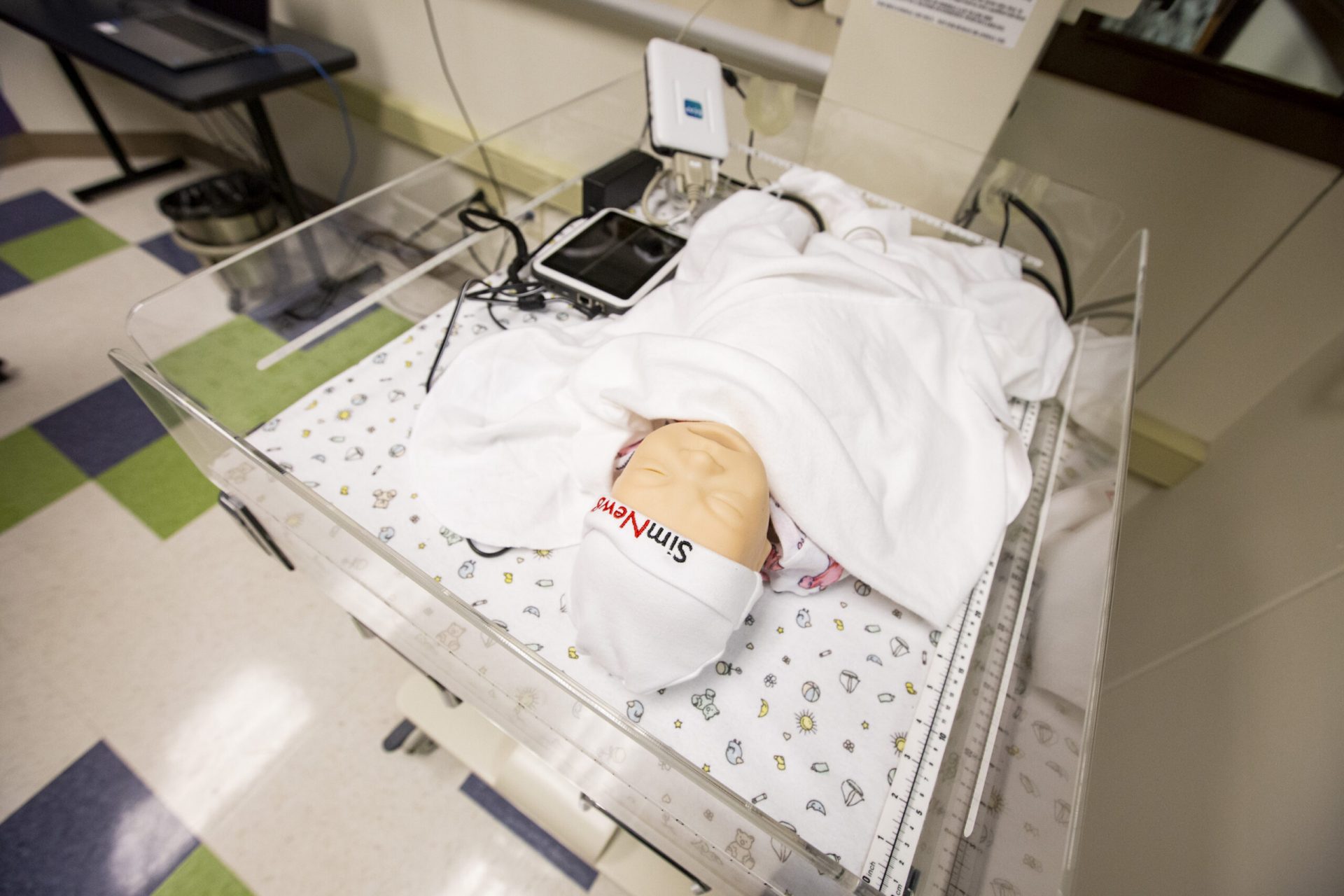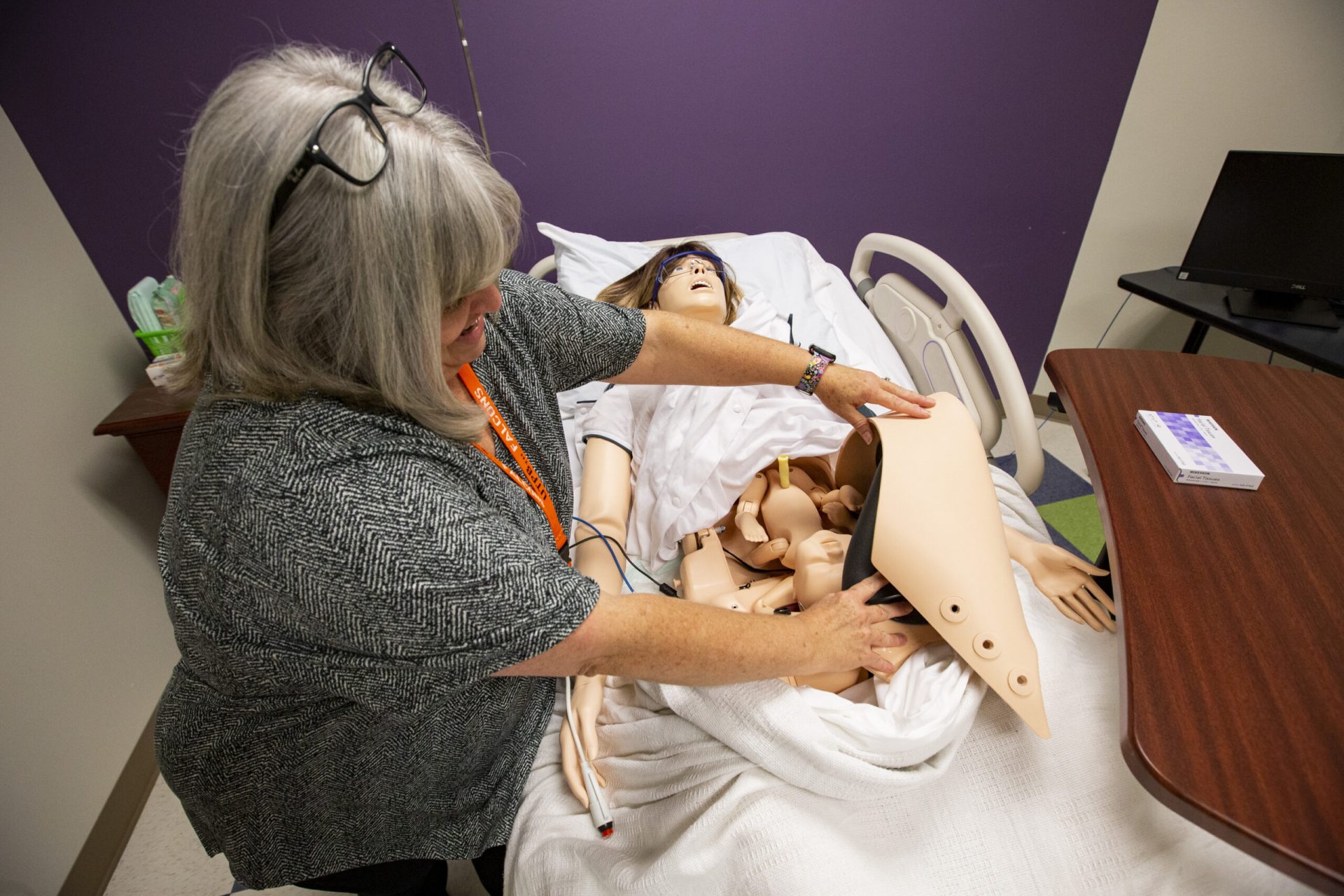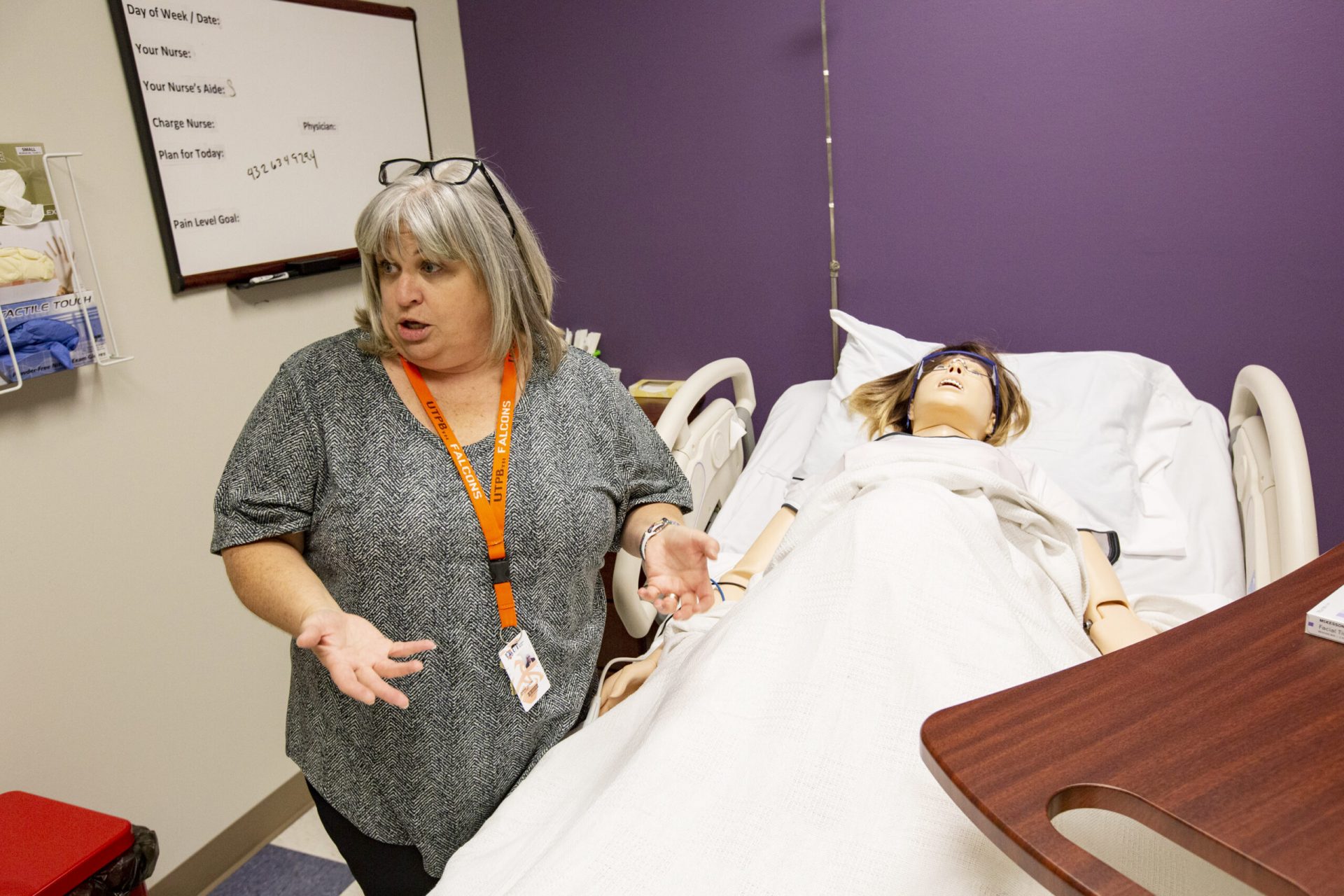After a career in a variety of nursing roles, Denise Dunne has settled as the director of the Simulation & Learning Resource Center, Labs and Experiential Learning at University of Texas Permian Basin.
She has been in the job about six weeks, but was an adjunct in the RN to BSN program for a year. She also taught for universities in California and Maine. BSN stands for bachelor of science in nursing.
Dunne and her husband were in Texas and decided to swing by UTPB and they still have family in the state. They were also looking to move from Rancho Santa Margarita, Calif., and decided to stay.
“I’ve loved working with the people and the mission and the vision and when the opportunity came up to oversee the simulation center, I really jumped on it,” she said.
As its name implies, the Sim Lab simulates healthcare situations.
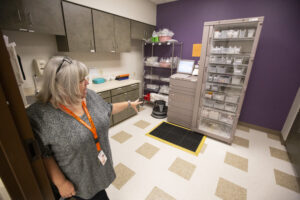
“One of our hallways here is set up for an acute care hospital, so if you were admitted to the hospital for surgery, or for some sort of procedure, or you were ill, we have everything set up just like you would in the hospital,” Dunne said. “We have a medication room. We have a Pyxis, which dispenses medication, not real medication. … Each bay that we have in our hallway here, we can simulate different situations in the hospital. So if somebody were having a cardiac arrest, we could run an entire code, per se. We also in our other hallway … have what we call Sim Mom and we can simulate an entire birth process,” Dunne said.
She added that they are in the process of setting up a developmental nursery, which will include social workers as well.
“Social workers are very involved in pediatrics and nursery … making sure that the parents have resources …,” Dunne said.
When she graduated from nursing school 30-plus years ago, none of what is included in the Sim Lab existed.
“We actually started IVs on each other. You don’t have to do that anymore, which is great. We have arms that can simulate that,” she said.
Integrating social work is relatively new to simulation.
“Most schools of nursing are very separate from social work and other specialties, so they don’t really look at joining forces. But when you are actually out in the real world, nursing and social work go hand in hand with each other, and coming up with care plans for patients and making sure that that patient is ready to go home and be able to care for themselves when they go home. Having social work in our college is very beneficial and being able to train not only the nursing students but the social work students to work as a team is ideal,” she added.
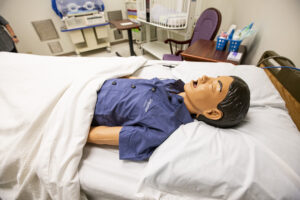
Since Sim Labs started, the mannequins have changed and gotten better.
Dunne said they had one for 11 years that they are about to upgrade. Others are of more recent vintage.
“And then we just got our Sim Mom, or Sim Jr., which is a pediatric patient, and our high-fidelity cardiac simulator just came in … Sim Mom and Sim Jr., we got about two weeks ago and we have training next week,” she said.
The nursing students and instructors can talk to the Sim people. One of their rooms is a control room so the instructors can watch what’s going on. The mannequin can say if it is having trouble breathing, where it is in pain and the mom can deliver a baby.
“… We can simulate a postpartum hemorrhage, which is an extremely critical situation. You really do need to know exactly what you’re doing in that situation because the amount of blood that a woman can lose within a matter of seconds is huge because all of your major veins and arteries are open immediately after the baby has been born in the uterus. And for you to have a postpartum hemorrhage at that point, you can literally bleed out within minutes. We have the ability to now simulate back here, so when they’re out in the real world and they see it, they can respond to it immediately,” Dunne said.
A native New Yorker, Dunne moved to California in junior high, lived in Houston in the mid-1990s and worked for Memorial Hermann hospital for a couple of years.
She was a travel nurse and went to different areas working at rural and large medical centers.
Her husband, Eric Alford, is an artist who does graphic design and 3-D animation.
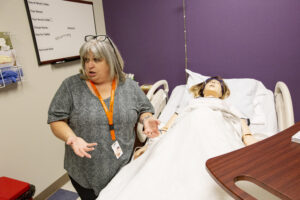
Dunne earned a bachelor’s degree in healthcare administration from the University of St. Francis in Joliet, Ill., a nursing degree from Saddleback College in Mission Viejo; a master’s from Husson University in Bangor, Maine and another master’s in organizational leadership from Azusa Pacific University.
Having graduated in 1992, Dunne was a staff nurse, worked with inpatients, outpatients, been a director for inpatient and outpatient, done research and more.
“I was getting burned out as being a nurse and really needed to find my passion again and seriously considered leaving nursing,” Dunne said.
She thought about going down the organizational route and fell into teaching.
“… It really sparked my love of nursing again and it gave me the ability to kind of mold the future of nursing, so even if I had the ability to change one or two students’ thought process of what nursing should look like, then I felt like I succeeded enough,” Dunne said.
Thinking about a career path, Dunne said her mother was a nurse, but she started out as a criminal justice major. After two years, she realized there was a height requirement to go into the Secret Service or FBI and she didn’t meet it.
She then decided to study nursing.
Dunne also is glad to be at UTPB and to have the Sim Lab, which is part of the College of Health Sciences and Human Performance.
“I love it. I am so excited about the opportunity that we have here. We are really looking to expand it to be able to do more simulations with it,” Dunne said.
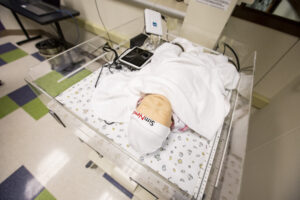
Destiny Walker is in her fourth and last semester of college and will be graduating in December.
The first day she walked into the Sim Lab, she was dazzled.
“… It looks like a hospital setting that you would see. When I walked in and got to see the mannequins, how everything was set up, I was really impressed with the technology they provided for us to help us develop our skills,” Walker said.
“That way we’re practicing before we actually go out there and perform these skills on the actual patient and we can get comfortable before even stepping foot in our clinical” settings, she added.
Walker said the lab helps develop critical thinking.
“I know in the past we’ve done case studies where we’re in the Sim Lab and we’re giving a patient such and such diagnosis and we’ll have the mannequins programmed to have high blood pressure, respiratory rates (that are) really high and we’re able to pretty much have a simulation of a patient going into respiratory distress, or having a stroke and we’re able to have that critical thinking developed within that Sim Lab instead of us just going out into the world and not knowing how to critically think yet,” Walker said.
Walker, who is going for a bachelor of science in nursing, said she wanted to be a veterinarian in elementary and junior high. But her mother inspired her to go into nursing.
“I was always interested in the medical field period. It didn’t start out as nursing, but my mom definitely inspired me to push through it …,” Walker said.

